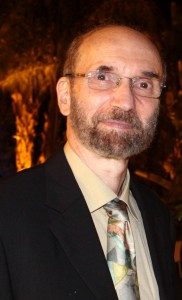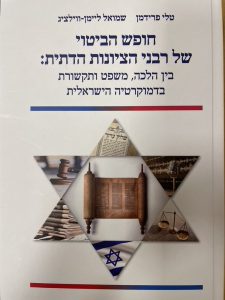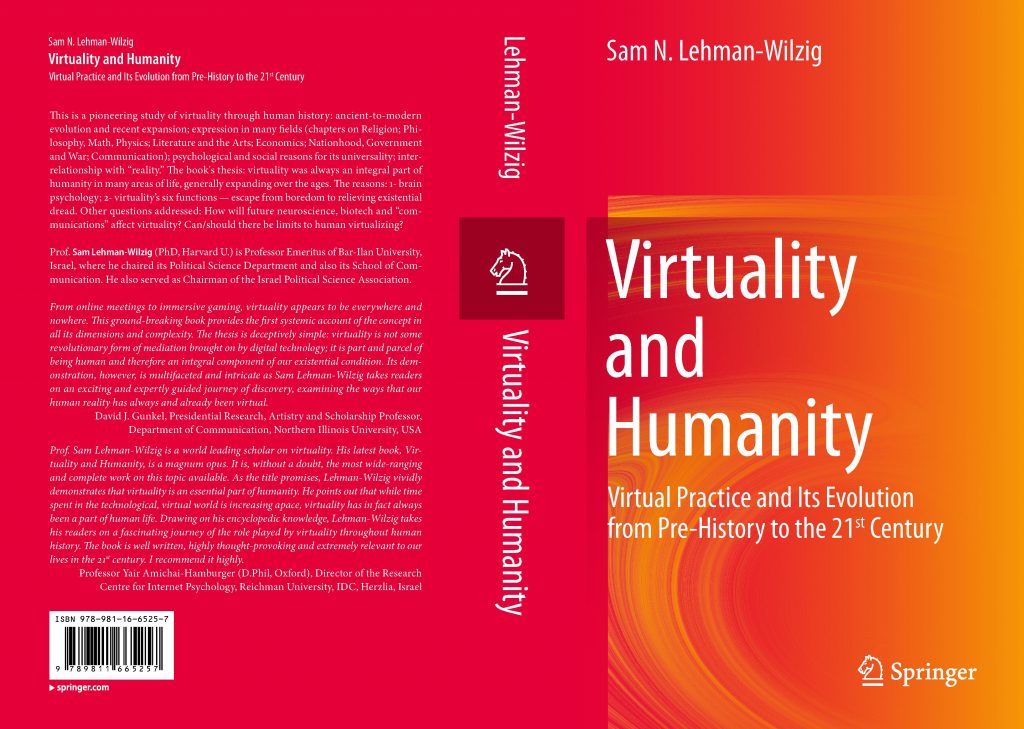Prof. Sam Lehman-Wilzig has taught and continues to research and publish in the fields of technology & society; new media; Israeli & general communications; Israeli politics; and Judaic studies. From 1991 through 2016 he headed several academic teaching programs in Bar-Ilan University, among them: Head of the Division for Journalism and Communications Studies (1991-1996); Vice Chair, Department of Political Studies, in charge of Public Communications (2002-2004), and then Department Chair (2004-07); Vice Chair, School of Communication (2011-2014), and Chairman (2014-2016). He was also Chairman of the Israel Political Science Association (1997-1999).
From October 2023 he has been serving as Academic Head of the new Communications Department at the Peres Academic Center (Rehovot, Israel). He presently also does freelance, academic book and article editing — substantive and copyediting (details are at the bottom of his CV).
Prof. Lehman-Wilzig has lectured in dozens of academic conferences, presented hundreds of public talks, and appeared in numerous TV and radio interviews in Israel and overseas. He has supervised 61 M.A. theses and 20 PhD dissertations, as well as creating several novel courses and a professional workshop for PhD students. On this site you can find his personal and academic profiles, full list of academic and general publications (6 books, 44 academic journal articles, and 25 academic book chapters), as well as conference presentations, courses taught, significant public service, honors & awards, significant book reviews, and other personal details.
His latest two books:
1) [In Hebrew] (With Tali Friedman) RELIGIOUS ZIONIST RABBIS’ FREEDOM OF SPEECH: Between Halakha, Israeli Law, and Communications in Israel’s Democracy (Niv Publishing, 2024).
טלי פרידמן ושמואל ליימן-ווילציג, חופש הביטוי של רבני הציונות הדתית: בין הלכה, משפט ותקשורת בדמוקרטיה הישראלית (הוצאת ניב, תשפ״ד)
2) VIRTUALITY AND HUMANITY: Virtual Practice and Its Evolution from Pre-History to the 21st Century was published by Springer Nature (Dec. 2021). For information about the book (description, commendations, purchase etc.) see: link.springer.com/book/9789811665257
You can read all the chapters of this book FOR FREE in read-only mode through these links:
Preface
https://bit.ly/3Im2AN7
Introduction
https://rdcu.be/c5zWm
Defining Virtuality
https://rdcu.be/c5zWn
Virtuality and/in the Brain
https://rdcu.be/c5zWt
Religion and the Supernatural
https://rdcu.be/c5zWu
Mathematics, Philosophy, Physics and Cosmology
https://rdcu.be/c5zWv
Music, Literature and the Arts
https://rdcu.be/c5zWS
Economics
https://rdcu.be/c5zXc
Community and Nationhood, Government, War
https://rdcu.be/c5zXj
Communication To/With/By the Masses
https://rdcu.be/c5zXr
Virtuality’s Expansion in the Modern Era: Media & Society
https://rdcu.be/c8O6Z
Why Do We Virtualize?
https://rdcu.be/c5zXQ
Virtuality and Reality: Two Sides of the Same Coin
https://rdcu.be/c5zXT
The Ultimate Virtual Frontier: Neuroscience, Biotech and Compunications
https://rdcu.be/c5zXV
Conclusions: Should There Be Limits to Human Virtualizing?
https://rdcu.be/c5zX1
This site is English-based with some texts appearing in the Hebrew original in PDF form (prior blogs, several articles, and two Hebrew profiles).


